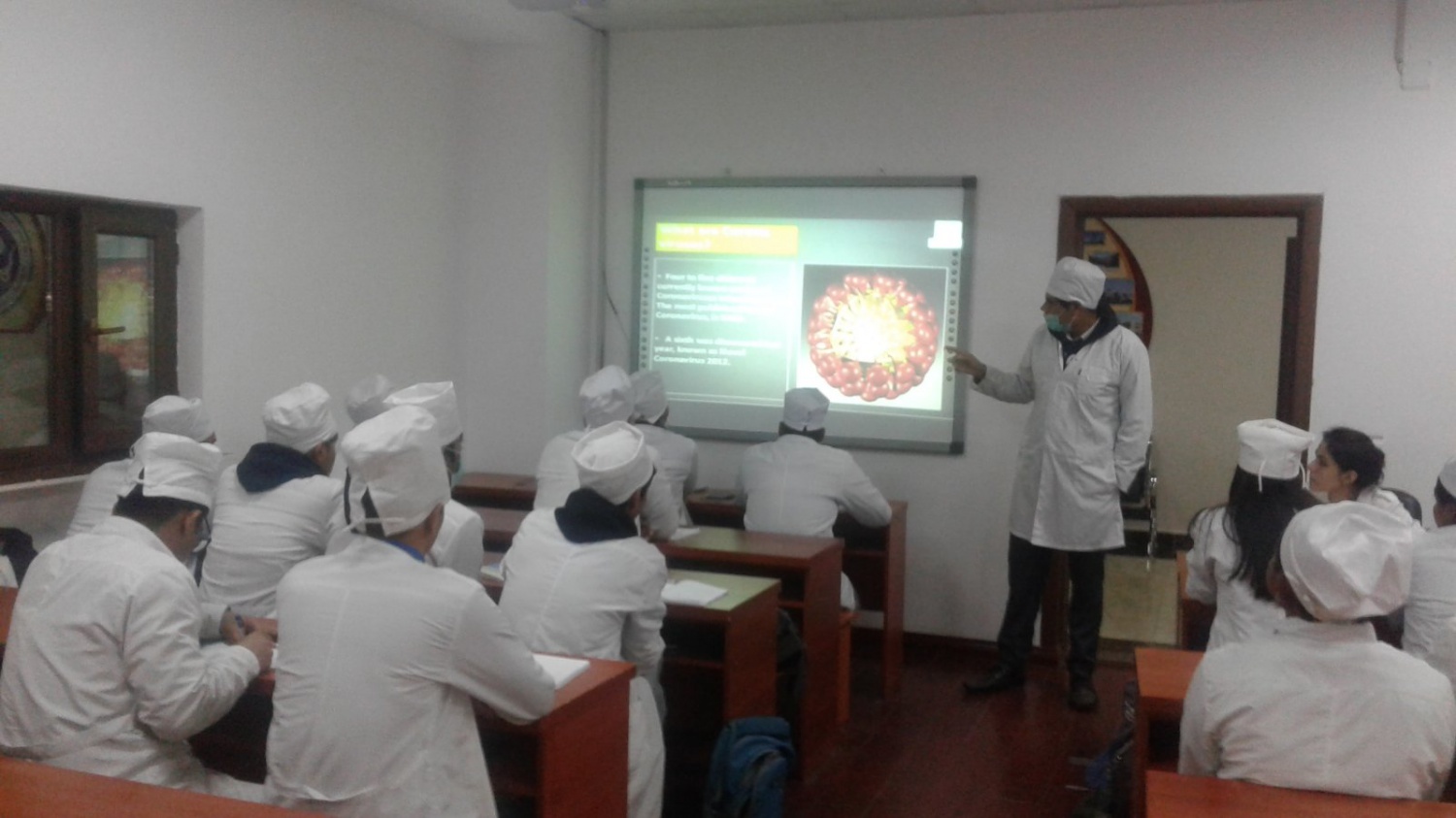2019 Novel Coronavirus (2019- nCov)
At the department of propaedeutics of children diseases of SEI «ATSMU» 10.02.20 year , an open lesson was held on the topic of ” 2019 Novel Coronavirus (2019- nCov) ” with the participation of teachers of the department and students of the 2nd groups of the 2nd year of bachelors (teacher – Kasimova P.V). Presentation was prepared by students of group 2th: Jakhar Shantanu , Wasim Akram , Ankit Meena.
2019 Novel Coronavirus (2019- nCov) is a virus (more specially, a coronavirus) identified as the cause of an outbreak of respiratory illness first detected in Wuhan, China. Early on, many of the patients in the outbreak in Wuhan, China reportedly had some link to a large seafood and animal market, suggesting animal-to-person spread. However, a growing number of patients reportedly have not had exposure to animal markets, indicating person-to-person spread is occurring. At this time, it’s unclear how easily or sustainably this virus is spreading between people.
How it spreads: much is unknown about how 2019- nCov, a new coronavirus, spreads. Current knowledge is largely based on what is known about similar coronaviruses. Coronaviruses are large family of viruses that are common in many different species of animals, including camels, cattle, cats, and bats. Rarely, animal coronaviruses can infect people and then spread between people such as with MERS, SARS, and now with 2019- nCov. Most often, spread from person-to-person happens among close contacts (about 6 feet). Person-to-person spread is thought to occur mainly via respiratory droplets produced when an infected person coughs or sneezes, similar to how influenza and other respiratory pathogens spread. These droplets can land in the mouths or noses of people who are nearby or possibly be inhaled into the lungs. It’s currently unclear if a person can get 2019-nCov by touching a surface or object that has the virus on it and then touching their own mouth, nose, or possibly their eyes.
Symptoms and Complications: for confirmed 2019- nCov infections, reported illness have ranged from people with mild symptoms to people being severely ill and dying. Symptoms can include:
Fever
Cough
Shortness of breath
CDC believes at this time that symptoms of 2019- nCov may appear in as few as 2 days or as long as 14 after exposure. This is based on what has been seen previously as the incubation period of MERS viruses.
Department of propaedeutics of children diseases
12.02.2020
620





